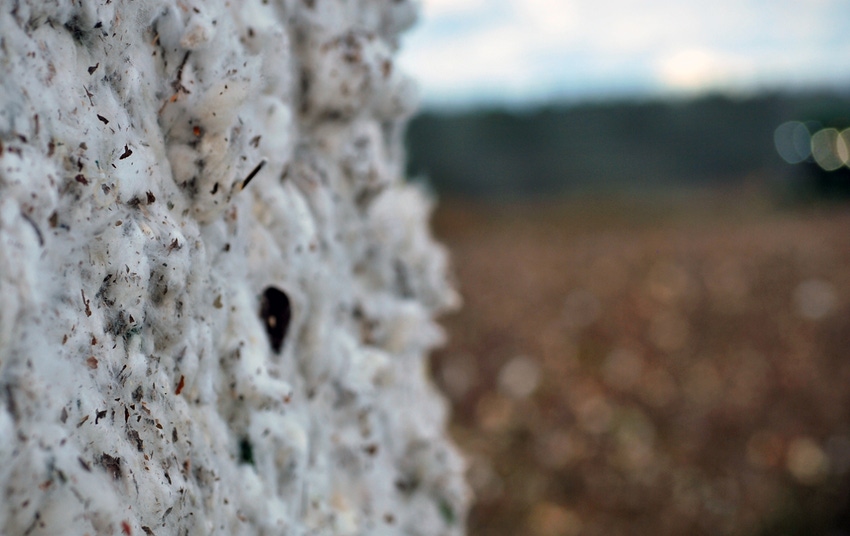
Secretary of Agriculture Tom Vilsack has the power under the current farm bill to designate cottonseed as an oilseed, which would give cotton farmers access to federal risk management options during cotton industry’s toughest economic times in decades.
Cotton farmers received backing for this action Dec. 15 when 100 members of congress sent Vilsack a letter formally urging him to use his legal authority to classify cottonseed as an “other oilseed,” which would make cottonseed eligible for the Agricultural Risk Coverage and Price Loss Coverage programs and provide a much-needed safety net for cottonseed and cotton farmers facing natural disasters and what is being called “predatory foreign competition” by China and India, which has left U.S. farmers financially struggling with few options.
The bipartisan letter followed testimony Dec. 9 by cotton industry leaders, beseeching congressional assistance to help the U.S. cotton industry.
During that Dec. 9 hearing National Cotton Council Vice Chairman Shane Stephens said during his testimony:
"With the lowest U.S. cotton acreage in more than 30 years, the smallest exports in 15 years, and cotton prices at their lowest level since the 2009 recession, economic pressure is mounting," Stephens said. "Cotton demand, 10 percent below the peak observed in 2006, is struggling due to increased competition from synthetic fibers, and government support for international cotton production is increasing. To help address the current economic climate, the cotton industry is urging the designation of cottonseed as an 'other oilseed' for the purpose of participation in the farm safety net."
“America’s farmers are currently experiencing a 55 percent free fall in net farm income, with huge losses due in part to the culprits of natural disasters and the unfair trade practices of foreign countries that use high and rising subsidies, tariffs, and non-tariff trade barriers to elbow U.S. farmers out of world markets,” said House Agriculture Committee Chairman Mike Conaway (R-TX) in a statement about the congressional letter to Vilsack. “Cotton farmers are getting hit the hardest right now and they are doing all they can just to hold on without access to key risk management tools under the Farm Bill.
“We are deeply concerned that unless the secretary takes action, there will be significant economic consequences. We cannot allow the predatory trading practices of a few huge players in the world cotton market to destroy cotton production in this country, but that is exactly what will happen without action,” Conaway says.
Ranking Member Collin C. Peterson (D-MN), General Farm Commodities and Risk Management Subcommittee Chairman Rick Crawford (R-AR), and Subcommittee Ranking Member Tim Walz (D-MN) spearheaded the rare coalition of rural and urban Democrats and Republicans from across the country, inside and outside of the cotton belt, in requesting that the Secretary use his authority under the Farm Bill to designate cottonseed an oilseed.
Soybean association OK with cottonseed request
The cotton industry received support for its cottonseed as oilseed request from the American Soybean Association in a letter written by wrote by ASA President Richard Wilkins to Vilsack Dec. 15.
“ASA is aware of and concerned about the difficult economic conditions currently facing U.S. cotton growers and the cotton industry,” Wilkins says. “Participation in the STAX program in 2014, at only 24 percent of producers, leaves a large majority of cotton farmers with no protection against low prices other than crop insurance and the marketing loan program. Allowing farmers with generic acres the option to sign up for a cottonseed PLC or County-ARC program would offer producers an improved safety net.
“We do not believe a cottonseed program would have a negative impact on the production of soybeans or other oilseeds, or on vegetable oil prices,” Wilkins continues in the letter. “The PLC and County-ARC programs are decoupled, so payments are not tied to current-year planting of any crop and producers can respond to market signals. This market-oriented approach is similar to programs in effect under the 2008 Farm Bill, when production of cotton and cottonseed was much higher, but did not negatively affect production or prices of soybeans or other oilseeds.”
“All of us in agriculture need to work together to support a safety net that works for all farmers,” commented ASA Chairman Wade Cowan of Brownfield, Texas. “Soybean growers are pleased to work with fellow producers from the cotton belt to make sure such a safety net exists.”
About the Author(s)
You May Also Like






